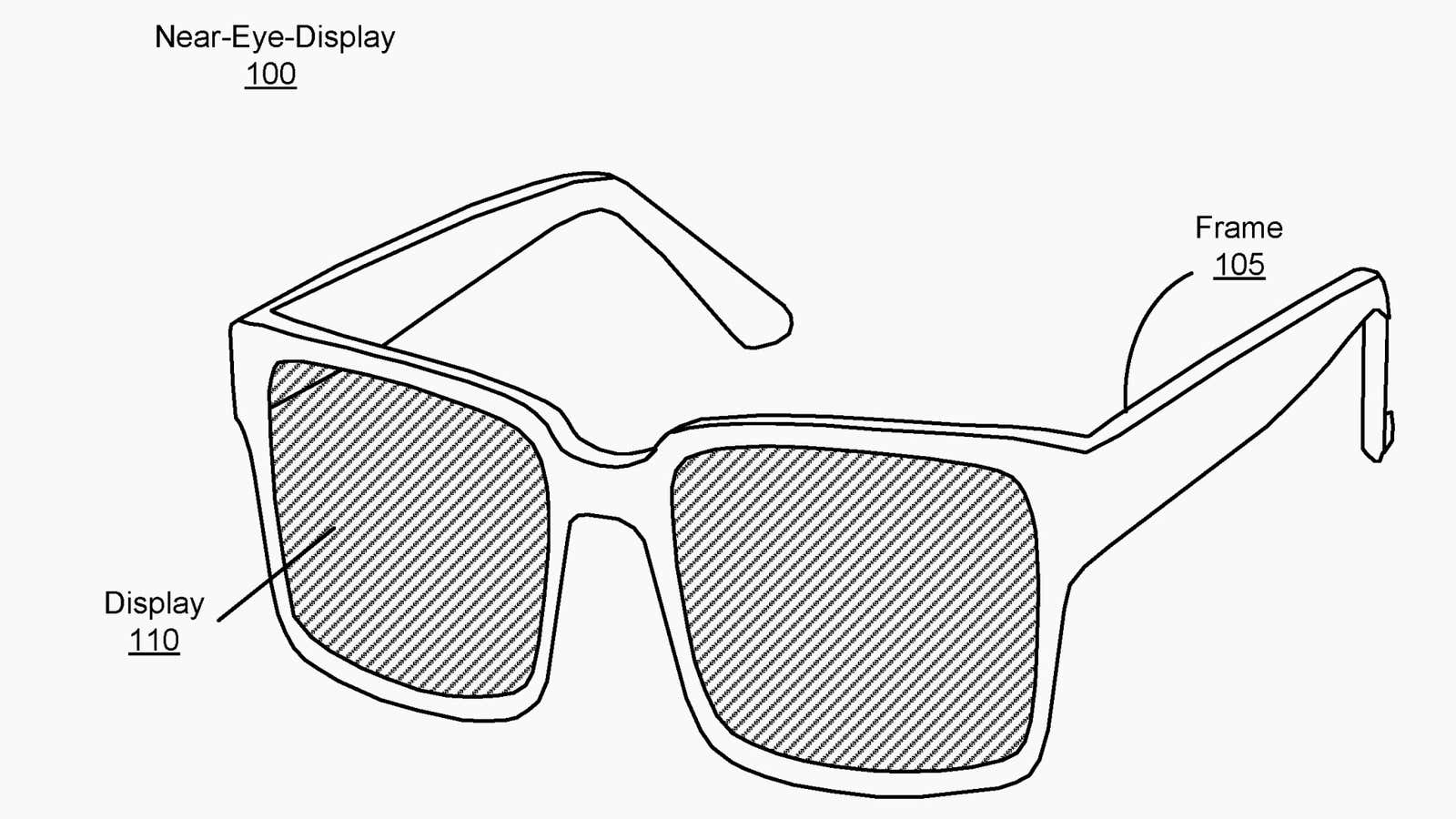Today, Facebook is a dominant social network—that’s not enough for CEO Mark Zuckerberg. He wants to help us see things that aren’t there.
Facebook is working on designing augmented reality glasses that could display digital objects in the physical world, according to a patent application filed Aug. 17. Zuckerberg had previously shown photos of similar glasses, saying that they would be the future of augmented reality, but he didn’t reveal that Facebook was developing such a product. If the company creates its own AR hardware, it would have its own Apple-like computing platform, marrying both hardware and software.
Zuckerberg has been particularly vocal about stating that augmented reality will be the next big consumer tech platform after smartphones. “Think about how many of the things you use [that] don’t actually need to be physical,” Zuckerberg told Recode earlier this year. “You want to play a board game? You snap your fingers, and here’s the board game.”
The application for a “waveguide display with two-dimensional scanner” details a pair of glasses with transparent displays for lenses. Light would flow into the displays, which would distribute the light and refract it into a user’s eyes. It’s unclear whether the image displayed would also be visible to those looking at the glasses.
“The waveguide display may be included in an eye-wear comprising a frame and a display assembly that presents media to a user’s eyes,” the patent application says.
This technology is being developed at Oculus, the virtual reality company Facebook acquired in 2014. One of the patent’s authors, a lead optical scientist at Oculus, previously helped build the optical system for Microsoft’s HoloLens, as noted by Business Insider. An executive at Oculus says the technology won’t really be viable until 2022.
The field for developing augmented devices is growing, but the technology is tricky. Microsoft’s HoloLens is the first available, but it’s aimed mainly at academia, developers, and a handful of professional uses that Microsoft has touted. Apple and Magic Leap (partially funded by Google) reportedly are working on similar technologies.
